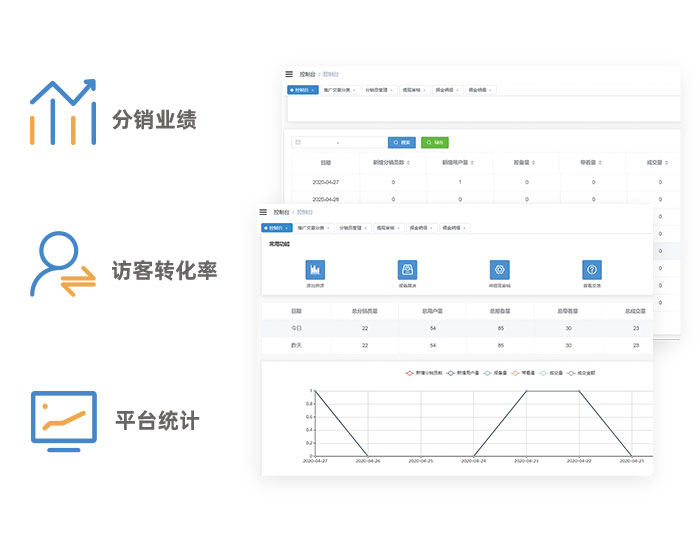在线购房解决方案
产品囊括七大核心模块、100多个系统功能
在线营销阵地
楼盘展示、视频展示、vr展示、购房咨询、分销拓客、报备管理、客户分析。全天候营销不掉线。
在线看房
支持图片看房、视频看房、vr看房,全方位展示项目信息,足不出户获取全面信息。
置业顾问
关联上级置业顾问,轻松锁客。一键拨打,不错失每一位客户!
客户拓展
内置全民经纪营销模块,支持二级分佣,客户裂变源源不断。
客户跟踪
可在小程序上看到每一位访客的行为路径,智能分析访客意向,轻松跟进。
在线订房
在线选房、订房、签合同,全程无纸化,一部手机就搞定。
线上展厅
足不出户在线看房
图文、视频、vr等多种呈现方式全面直观的展示房源信息,打造24小时在线楼盘。

在线顾问
自动关联置业顾问,随时提供专业服务

客户雷达
跟踪客户浏览轨迹,建立客户画像和意向分析,跟进精准

拓客辅助
统一提供推广物料、素材;以及搭建拓客教程。帮助顾问更好获客。

全民分销
打通微信社交裂变,让客户推客户,获取更多潜在客户。

销售关联
置业顾问数字化移动管理,提高管理效率

数据查看
+实现营销运营数据可视化,拓客业绩,佣金数据一目了然

楼盘佣金识别系统的价格-楼盘销售佣金规定
Article Title: Understanding the Pricing of Real Estate Commission Recognition Systems and Property Sales Commission Regulations
Abstract:
This article delves into the intricate landscape of real estate commission recognition systems and property sales commission regulations. It explores the multifaceted aspects influencing the pricing of these systems and the regulations governing commissions in property sales. Through a comprehensive examination, it aims to shed light on the complexities involved in determining commission structures and their implications on the real estate industry.
---
The Importance of Real Estate Commission Recognition Systems
Real estate commission recognition systems serve as pivotal tools in the industry, facilitating transparent and efficient transactions between buyers, sellers, and agents. These systems streamline the process of identifying and allocating commissions, ensuring fair compensation for the involved parties. By integrating advanced technologies such as machine learning and data analytics, these systems enhance accuracy and reduce discrepancies in commission calculations.
The pricing of real estate commission recognition systems is influenced by various factors, including the scope of functionality, scalability, and customization options. Initially, the upfront costs of implementing these systems may seem daunting. However, the long-term benefits in terms of time savings, reduced errors, and improved client satisfaction outweigh the initial investment. Additionally, the pricing models may vary, ranging from one-time licensing fees to subscription-based models, catering to the diverse needs of real estate agencies.
Despite the advantages offered by these systems, challenges persist, particularly regarding data security and privacy concerns. Developers must prioritize robust security measures to safeguard sensitive information and comply with regulatory requirements. Moreover, ongoing maintenance and updates are essential to ensure the efficacy and relevance of these systems in an evolving real estate landscape.
Factors Influencing Commission Regulations in Property Sales
Property sales commission regulations play a pivotal role in shaping the dynamics of the real estate market, influencing the behavior of agents, brokers, and clients. These regulations are formulated at both state and federal levels, aiming to promote transparency, fairness, and consumer protection. Key factors influencing commission regulations include market dynamics, legislative reforms, and industry standards.
In recent years, regulatory bodies have intensified their scrutiny of commission structures, particularly regarding disclosure requirements and conflicts of interest. The rise of alternative models such as flat-fee and hourly rate arrangements has sparked debates surrounding traditional commission-based compensation. As a result, regulatory frameworks are evolving to accommodate diverse compensation models while upholding ethical standards and consumer interests.
Real estate professionals must navigate a complex maze of regulations to ensure compliance and mitigate legal risks. Failure to adhere to commission regulations can result in severe penalties, tarnishing the reputation of agents and brokerage firms. Therefore, comprehensive training and ongoing education are imperative to equip professionals with the knowledge and skills necessary to navigate regulatory complexities effectively.
Economic Implications of Commission Structures
Commission structures in property sales have far-reaching economic implications, influencing market dynamics, transaction costs, and consumer behavior. Traditional commission-based models, characterized by percentage-based fees, have been criticized for their potential to inflate prices and deter entry-level buyers. In response, alternative pricing models such as tiered commissions and performance-based incentives have gained traction, offering greater flexibility and affordability.
The pricing of real estate properties is inherently linked to commission structures, as sellers factor in transaction costs when setting listing prices. High commission rates may discourage sellers from listing their properties, exacerbating inventory shortages and driving up housing prices. To address these concerns, policymakers are exploring regulatory reforms aimed at promoting price transparency and reducing transaction costs.
Furthermore, commission structures influence agent incentives and behavior, shaping their interactions with clients and counterparties. Incentive alignment is crucial to fostering trust and collaboration between agents and their clients, ultimately enhancing transaction outcomes and customer satisfaction. As such, commission structures must strike a delicate balance between incentivizing agents and aligning their interests with those of their clients.
Technological Innovations in Commission Recognition Systems
Technological innovations have revolutionized the landscape of real estate commission recognition systems, empowering agents and brokerages with advanced tools for streamlining transactions and enhancing productivity. From AI-powered algorithms to blockchain-enabled platforms, these innovations offer unprecedented levels of efficiency, transparency, and security.
AI-driven commission recognition systems leverage machine learning algorithms to analyze vast datasets and identify patterns in commission structures. By automating repetitive tasks such as commission calculations and reconciliation, these systems free up valuable time for agents to focus on client interactions and business development. Moreover, AI algorithms can detect anomalies and discrepancies, reducing the risk of errors and fraud in commission payouts.
Blockchain technology holds promise for revolutionizing commission recognition systems by providing a decentralized and tamper-proof ledger for recording transactions. Smart contracts embedded in blockchain networks enable automatic execution of commission agreements, eliminating the need for intermediaries and reducing transaction costs. Additionally, blockchain enhances transparency and auditability, instilling trust among stakeholders and minimizing disputes.
Legal and Ethical Considerations
In the realm of real estate commission recognition systems and property sales commission regulations, legal and ethical considerations loom large, shaping industry practices and standards. Regulatory compliance is paramount, as non-compliance can result in legal liabilities and reputational damage. Therefore, real estate professionals must stay abreast of changing laws and regulations to ensure adherence and mitigate risks.
Ethical dilemmas often arise in commission-based transactions, as agents must navigate conflicting interests between buyers, sellers, and themselves. Disclosure requirements and fiduciary duties compel agents to act in the best interests of their clients, even if it means sacrificing their own financial gains. Transparency and integrity are cornerstones of ethical conduct in real estate transactions, fostering trust and long-term relationships with clients.
Moreover, technological advancements bring forth new ethical challenges, particularly concerning data privacy and algorithmic bias. Developers of commission recognition systems must prioritize ethical design principles and data governance frameworks to safeguard against unintended consequences and discriminatory practices. Transparency and accountability are essential to building trust and ensuring the responsible use of technology in real estate transactions.
Conclusion: Navigating the Complexities of Commission Recognition and Regulation
In conclusion, the pricing of real estate commission recognition systems and the regulations governing property sales commissions are integral components of the real estate industry. By understanding the multifaceted factors influencing commission structures and regulations, stakeholders can navigate the complexities of the market effectively. Technological innovations offer promising solutions for streamlining transactions and enhancing transparency, but legal and ethical considerations remain paramount. As the industry continues to evolve, collaboration between policymakers, industry stakeholders, and technology providers is essential to foster a fair, transparent, and sustainable real estate market.

